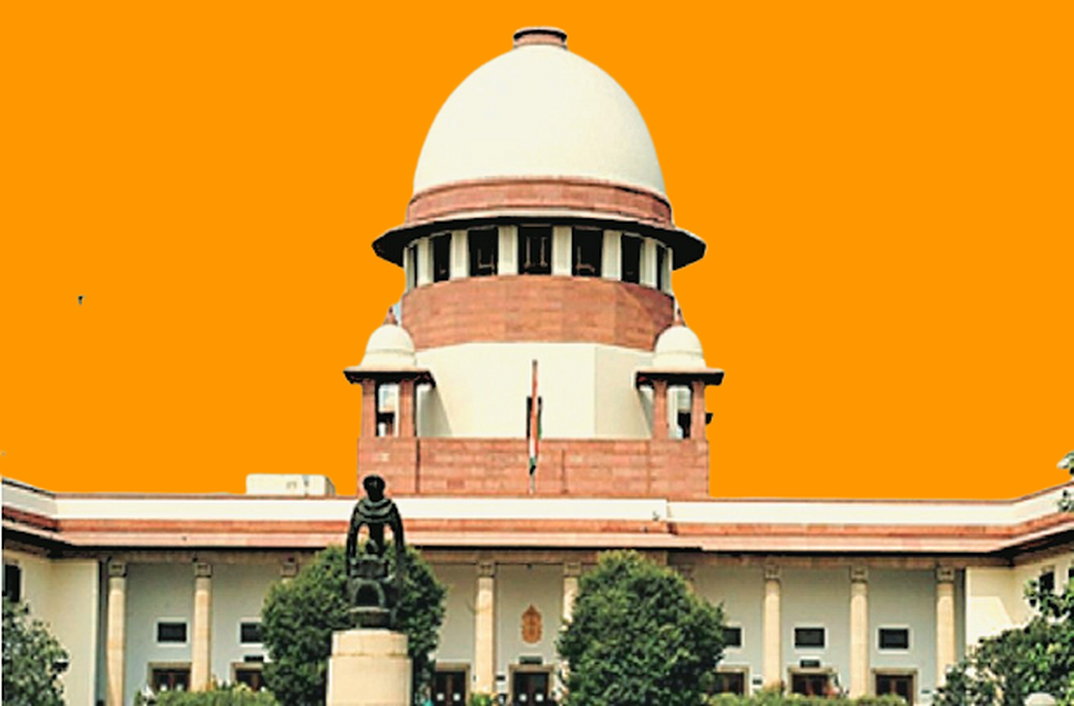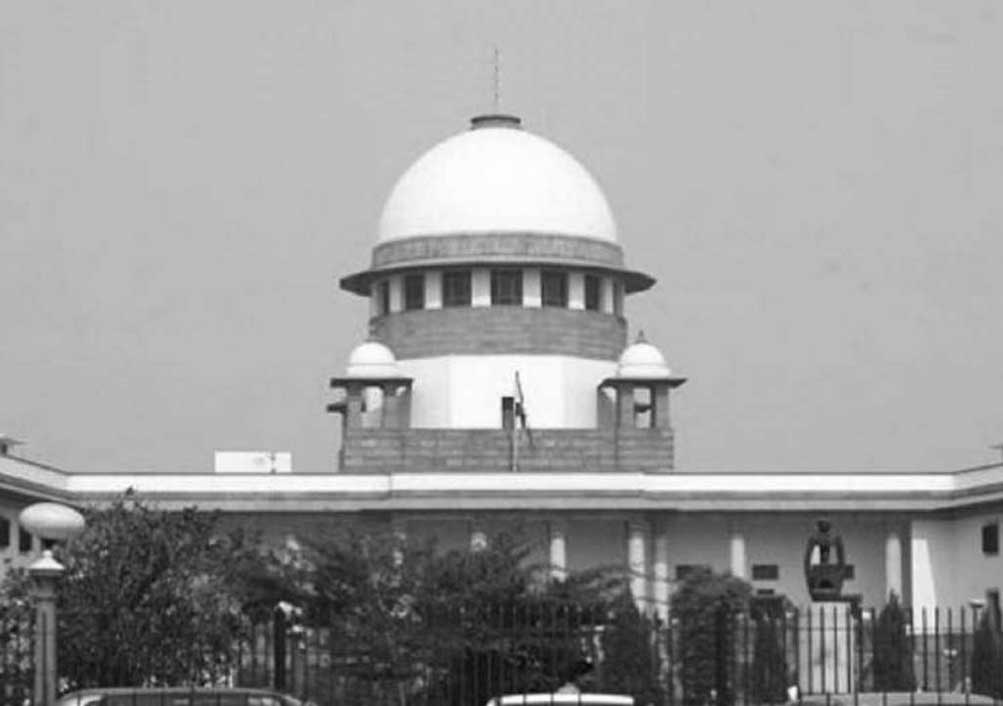Burden of proving the fact, which excludes the liability of the insurer to pay compensation, lies on the insurer alone and no one else: Apex Court asks company to pay insurance claim
Justices B.V. Nagarathna & Augustine George Masih [10-04-2024]

Read Order: MAHAKALI SUJATHA v. THE BRANCH MANAGER, FUTURE GENERALI INDIA LIFE INSURANCE COMPANY LIMITED & ANOTHER [SC-CIVIL APPEAL NO. 3821 OF 2024]
Tulip Kanth
New Delhi, April 15, 2024: Considering the fact that the respondent-Insurance Company failed to adequately discharge its burden of proof about the fact of suppression of previous life insurance policies of the insured, the Supreme Court has asked the company to make the payment of over Rs 17 lakh with interest to the complainant.
The factual background of the case was such that Late Sri Siriveri Venkateswarlu, father of the complainant, obtained two insurance policies from the opposite party – one in the year 2009 for a sum of Rs. 4,50,000, and the other in 2010, for a sum of Rs 4,80,000. Under the said two policies, in the event of death by accident, twice the sum assured was payable by the insurer. In the application form of the policy, the insured had been asked about the details of his existing life insurance policies with any other insurer, and the insured had answered the same in the negative. The complainant, being the daughter of the policyholder Late Sri Siriveri Venkateswarlu, was nominated to receive the proceeds under both the policies.
In 2011, the policy holder unfortunately lost his life in a train accident, leaving behind the complainant alone as his legal heir as well as nominee for death benefits. Immediately thereafter, the complainant approached the opposite party and informed them about the death of her father and they advised the complainant to submit a claim form along with necessary documents which she did. However, by a letter dated 31.12.2011, the complainant’s claims were repudiated by the opposite party on the ground that the policy holder had suppressed material facts in his application form with respect to existing life insurance policies from other insurers.
The complainant approached the concerned District Forum by way of a consumer complaint which was allowed on the ground that no documentary evidence was available to show that the deceased- insured had taken various insurance policies from various other companies. The Commission directed the opposite parties to pay the insurance amount of Rs.7,50,000 + Rs.9,60,000 under two policies jointly and severally with interest at the rate of 6% per annum from 31.12.2011, i.e., the date of repudiation of the claim of the complainant, till realization, along with costs of Rs. 2000 to the complainant.
The insured/opposite party’s appeal before the State Consumer Forum was dismissed. The opposite party thereafter approached the NCDRC through Revision Petition and the consumer complaint was dismissed. Hence, the complainant preferred the present Special Leave Petition before the Apex Court.
In this matter, before the Division Bench of Justice B.V. Nagarathna & Justice Augustine George Masih, the controversy pertained to the factum of repudiation of the insurance claim of the Complainant on the ground of the material suppression of information regarding the previous policies allegedly held by the insured-deceased, while taking the life insurance policy from the Opposite Party.
It was clarified by the Bench that the repudiation of an insurance claim is largely governed by Section 45 of the Insurance Act, 1938 which bars the calling in question of an insurance policy beyond expiry of the stipulated period, except in a few circumstances that have to be proved by the insurer.It was opined that since the present case dealt with a policy and its repudiation before the 2014 amendment to Section 45, the pre-amendment time period of two years would be applicable to the case and the insurer cannot question the policy after the expiry of the time period. If it does, then the burden rests on the insurer to establish materiality of the fact suppressed and the knowledge of the insured about such suppression, so that the repudiation of the claim could be justified by the insurer, the Bench added.
“In the present case, the onus was on the insurer to show that the insured had fraudulently given false information and the said information was related to a material fact”, it said while also adding, “ Thus, the principle of utmost good faith imposes meaningful reciprocal duties owed by the insured to the insurer and vice versa…In relation to the duty of disclosure on the insured, any fact which would influence the judgment of a prudent insurer and not a particular insurer is a material fact.”
In this case, the respondent insurance company had produced no documentary evidence whatsoever before the District Forum to prove its allegation that the insured had taken multiple insurance policies from different companies and had suppressed the same. The District Forum had therefore concluded that there was no documentary evidence to show that the deceased-life insured had taken various insurance policies except an averment and on that basis the repudiation was held to be wrong.
Before the State Commission, the respondent had provided a tabulation of the 15 different policies taken by the insured-deceased, amounting to Rs.71,27,702. However, the same was not supported by any other documentary evidence, like the policy documents of these other policies, or pleadings in courts, or such other corroborative evidence. It was also noted by the Bench that there was no effort made by the respondent to bring any authenticated material on record.The NCDRC however accepted the averment of the respondents, without demanding corroborative documentary evidence. The NCDRC, on the contrary, also held that the fact about multiple policies was not dealt with by the appellant in her complaint or evidence affidavit and this therefore proved that the insured had indeed taken the policies from multiple companies as claimed by the respondents.
Observing that this approach adopted by the NCDRC was incorrect, the Bench said, “The cardinal principle of burden of proof in the law of evidence is that he who asserts must prove, which means that if the respondents herein had asserted that the insured had already taken fifteen more policies, then it was incumbent on them to prove this fact by leading necessary evidence. The onus cannot be shifted on the appellant to deal with issues that have merely been alleged by the respondents, without producing any evidence to support that allegation.”
Noting that the respondents had merely provided a tabulation of information about the other policies held by the insured-deceased and the said tabulation also had missing information with respect to policy numbers, issuing dates & different dates of births, the Bench considered the admitted fact that this information had not been supported with any other documents to prove the averment in accordance with law. No officer of any other insurance company was examined to corroborate the table of policies said to have been taken by the deceased policyholder.
“A fact has to be duly proved as per the Evidence Act, 1872 and the burden to prove a fact rests upon the person asserting such a fact. Without adequate evidence to prove the fact of previous policies, it was incorrect to expect the appellant to deal with the said fact herself in the complaint or the evidence affidavit, since as per the appellant, there did not exist any previous policy and thus, the onus couldnt have been put on the appellant to prove what was non-existent according to the appellant”, it held.
As per the Bench, the respondents, vide their counter affidavit sought to produce some documents to substantiate their claim of other existing insurance policies of the insured- deceased, but the same couldn’t be permitted to be exhibited at this stage, that too, in an appeal filed by the complainant who was the beneficiary under the policies in question.
“Therefore, it can be safely concluded that the respondents have failed to adequately prove the fact that the insured-deceased had fraudulently suppressed the information about the existing policies with other insurance companies while entering into the insurance contracts with the respondents herein in the present case. Therefore, the repudiation of the policy was without any basis or justification”, the Bench held while allowing the appeal. The Top Court also asked the respondent-company to make the payment of the insurance claim under both the policies to the appellant, amounting to Rs 7,50,000 and Rs. 9,60,000, with interest at the rate of 7% per annum from the date of filing the complaint, till the actual realisation.
Sign up for our weekly newsletter to stay up to date on our product, events featured blog, special offer and all of the exciting things that take place here at Legitquest.




Add a Comment